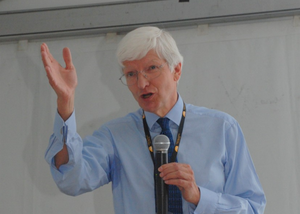The key challenge
The major challenge of this century is to provide the world with sufficient food, water and energy, in an equitable and sustainable way, in the face of rising world population, the threat of climate change, and a decline in the availability of fossil fuels as the century progresses. Without sufficient energy it will not be possible to provide adequate water and food. Provision of sufficient energy, in a sustainable way, is therefore the key challenge.
If we can produce fusion power in a reliable and competitive way, it will be one very important part of the portfolio of measures that must be taken to meet the energy challenge. I say "if" because we are not certain that we can do it and we don't know what the competition will be or what it will cost. The role of ITER is of course to demonstrate the scientific and technical feasibility of fusion power.
Recognizing the importance of determining the viability of fusion, countries that together house over half the world's population have combined their forces to build ITER. One reason for working together is that we can share costs, because fusion development is thought to be expensive, although in fact the cost is negligible on the scale of the $5 trillion dollars that the world spends on energy every year, or the consequences in the future if we fail to meet the energy challenge. More importantly, in my opinion, by working together we can combine intellectual resources and bring the best talents together, from wherever they may be located, to work on fusion.
I said that we are not certain that fusion power will be viable, although I am optimistic. I am however 100 percent certain that we must make every effort to establish its viability, and that ITER is of vital importance for the world and for future generations.


